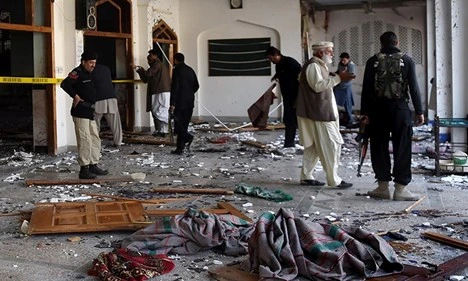Over the years, Dir has been known as an important area of Khyber Pakhtunkhwa that has endured a great deal of terrorism. The TTP represents a nightmare of problems and suffering in the region. Once it was eliminated by Pakistan forces, it has recently issued a statement asking the residents of Dir to stand with them against the state. It is again an attempt to deceive the people by misquoting Islam, as it happened in the past, but recently, the situation is the other way around, as the people are aware of FAK’s evil motives.
The government of Pakistan and leading Islamic scholars have declared the TTP as Fitnah al-Khawarij (FAK). The designation points out that the group knowingly changes the teachings of Islam to fool people. Despite their claims, what FAK does in reality does not follow the important principles of Islam. They twist Islam to hide their actions, which are not acceptable in Islam. This article looks into the causes, the ways ideology is used, and how terrorism permanently shapes the lives of people in the Pashtun community.
FAK’s origins will be better explained once the major geopolitical changes caused by 9/11 can be understood. After the US went to war in Afghanistan, the Pashtun area of Pakistan became full of uncertainty because of its proximity to Afghanistan. FAK was present in different districts of Khyber Pakhtunkhwa, covering Swat, Bajaur, and Dir. Presenting itself as a promoter of Sharia Law, the group wielded its power over the community, which had already been weakened by difficulties.
FAK is utilizing violence and oppression. It carries out serious and common attacks by targeting schools, mostly aimed at girls. FAK has bombed or destroyed more than 400 schools, which violates Islamic regulations. Such strikes on education show that the standards of Islam are broken, as they endanger a lot of children. Excessive actions by the FAK included tearing down educational institutions, unfairly killing citizens, influencing community chiefs, and collecting excessive taxes.
Although their courts are not fair and do not follow the law, they depend on intimidating the public to keep them in line. Just like the historical Khwarij, they allow violence against Muslims in the name of Islam. The Sunnis believed that legitimacy and respect for authority based on terror or submission was caused by the Khwarij.
Taking Islamic scripts is a major way the FAK has supported the growth of its influence. They select verses from the Quran to support their actions and place the blame on the opposition for not looking at what else was written in the Quran. They used the writings in Islam intentionally in the wrong way. FAK justifies their unkind actions by picking certain teachings from Islam. Although different opinions are found in scholastic interpretation.
The organization committed deeds of cruelty such as attacks, killings, and assaults, including the mass murder of the peace committee member. These actions show that the actors have a real contempt for the value of human life in Islam.
The prophet’s warnings can help us avoid the mistakes those with FAK often make. According to the Prophet Muhammad(SAW), false forecasters would eventually come and follow the scriptures but lose their sense of good and right. The simile wonderfully describes the morally unconcerned qualities of activities used to advance political aims instead of spiritual and social reform.
The Pakistani state’s military actions, such as Rah-e-Rast and Zarb-e-Azb, symbolized not only an effort to target terrorism; they also signaled disapproval of radical thinking. Throughout the country, efforts began to return to normal, organize again, and reject terrorism in Dir, Swat, and Waziristan. The local fight in these areas explained why the Pakistani forces acted violently with Rah-e-Rast and Zarb-e-Azb; it was not only a counterterrorism move but also communal disapproval. Wherever it was found, the communities in Dir, Swat, and Waziristan worked to rebuild their normal lives and overthrow those who supported the FAK’s instructions. Many scholars pointed out that the “Sharia” put forward by FAK did not show fairness, kindness, or intellectual depth.
Regardless of FAK’s efforts to restore its appearance through propaganda, its essential objectives remain unaffected. The organization continues to exploit social grievances and economic vulnerabilities, recruiting those marginalized by dislocation and scarcity with suppressed skills for adaptation and ambition. Its declared opposition to coercion is contradicted by its overall brutality and defeat. The glorification of forceful performers as “martyrs” is a distortion of Islamic martyrdom, which conventionally honors sacrifice made to protect life and uphold justice, not to eliminate innocent lives.
A strategy that works on multiple levels was needed to manage the risk of FAK. The military is not the only answer. It is essential to present a detailed answer to ideological statements using educators, members of civil society, and Islamic scholars to restate the Islamic view in a more multi-sided manner. To support this strategy, we encourage learning about religion and create meaningful chances for young people.
The country and its neighbors around Dir have displayed exceptional strength by not opening themselves up to terrorism. What they did proves that Pakistan is not a nation of violence and cruelty as supposed by FAK. Because these societies are familiar, the general belief is that the main foundation of their culture is factual Islam, which guides them in agreement, understanding, sympathy, and protection. Thanks to such standards, Pakistan can deal with and eventually overcome the issue of radicalism.








